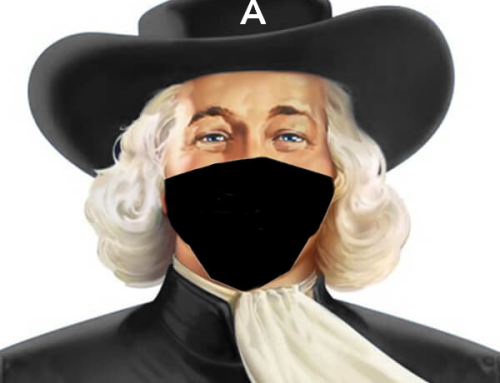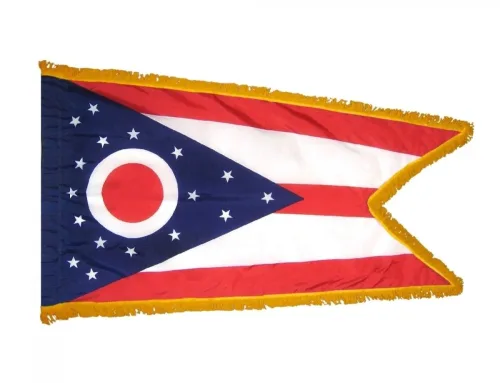The ‘Hillbilly Elegy’ author’s Trumpian transformation is complete
By Skylar Baker-Jordan
I want to start off by apologizing. I’m sure you are sick of hearing about J.D. Vance. After five years of him pretending to speak for a region he’s never lived in, I can understand if you’d be happy never to hear his name again. I get it. Still, I think we need to talk about J.D. at least one last time.
In a development that we should have all seen coming, the worst of Appalachia has endorsed a pretender to our region. “I am so honored to have Marjorie’s support,” Vance—who is running for the Republican nomination for Senate in his native Ohio—said last month, accepting the endorsement of far-right Congresswoman Marjorie Taylor Greene (who, sadly, does represent an Appalachian district).
To those who elevated Vance to the national stage upon the publication of his 2016 memoir “Hillbilly Elegy,” this may be a shocking development. After all, Vance publicized his book in television appearances and on social media by positioning himself as an anti-Trumpian bootstrapper who was forlorn that “his people” were falling for a bigoted huckster. “Trump makes people I care about afraid. Immigrants, Muslims, etc.,” he said in a now-deleted tweet from 2016. “Because of this I find him reprehensible. God wants better of us.”
In their rush to understand just why white working-class people, especially in the coal fields of Central Appalachia, were “voting against their interests,” the liberal media decided asking them was too gauche. Instead, it elevated a charlatan and opportunist with deep ties to the very oligarchs he now condemns.
More: Read These Stories Instead of Watching ‘Hillbilly Elegy’
Indeed, if the national media bothered to listen to anyone from Appalachia, they would have known that Vance was very obviously a fraud. Those of us who come from Appalachia saw through his schtick right away. To begin with, Vance never lived a day of his life in the hills and hollows of Eastern Kentucky, from where his family and mine both hail. He instead grew up in Middletown, Ohio—a suburb of Cincinnati—and spent a few weeks every year visiting relations down home.
There’s no shame in this; I grew up thirty minutes from Vance in Dayton, Ohio, and spent summers visiting relations in Leslie County, Kentucky, which was thirty minutes from Vance’s family in Breathitt County. Unlike Vance, though, I eventually moved to this region. I graduated high school and college in Kentucky. I now live in East Tennessee. And the one thing I have heard from everyone—right, left and center—is that no one ever asked J.D. Vance to speak for us.
Vance took his uniquely dysfunctional family and made them into caricatures, avatars of the hillbillies he denigrates as pathologically lazy, violent and dependent on handouts. That there are plenty of people with substance use disorders in Appalachia is no secret—the pharmaceutical industry made sure of that by aggressively targeting people who perform literal backbreaking labor in our region—but his abusive grandparents, ill mother and absentee father are beyond what most Appalachians will recognize.
Using his singular experience to draw broad generalizations about a region and people he never knew beyond his own extended family is—to borrow a word Vance and his newfound fellow travelers will be familiar with—deplorable. It is also wrong.
Writing in his essay “Black Hillbillies Have No Time for Elegies,” William H. Turner points out that many Black people from his home in Harlan County went on to successful middle- and upper-class careers. “If Black hillbillies can make it in America,” Turner asks, “then what’s Vance’s family’s excuse?”
Vance actually answers this question in his book, pathologizing the culture of the “Scotch-Irish” who make up Appalachia and blaming the clannish blood of Scottish highlanders for the plight of modern society. I’m not buying it, though, and neither is Turner. “In a capitalist economy, the choices of government policy makers and the corporations that lobby politicians play a large role in both creating and maintaining poverty,” Turner writes.
The pharmaceutical industry which pumped our people full of opioids, the extraction economy which destroyed our mountains and drove our workers north to find employment, the lack of a social safety net—these are all choices made by policymakers and capital. Yes, Appalachians have agency, but only within the same economic system as the rest of the country.
More: What Hillary Clinton is Still Getting Wrong About Appalachia
Turner’s writings—indeed his very existence—also negates another of Vance’s central theses: that Appalachians are inherently violent and uncivilized, that poverty and lawlessness are in our DNA. Writing in his book “The Harlan Renaissance: Stories of Black Life in Appalachian Coal Towns,” Turner reminds readers that Black people have lived in Appalachia for just as long as white people, many came in significant numbers to mine coal in the early twentieth century. So did Italian immigrants, Czech immigrants, Eastern European immigrants, and so on. Appalachia has never been racially or ethnically or even culturally homogenous, much as Vance may wish otherwise.
The thrust of Vance’s book—indeed, his entire public persona—is wrapped up in this mythological notion of the American dream. That if these stupid rednecks would just work hard, like him, they could make their lives better. Of course, in his book Vance talks a lot about the sacrifices he had to make to enter those elite circles and how impenetrable they are. But Vance made it, and to him, that’s what counts.
And this is where Vance shows himself for who he really is, something “hillbillies” like me saw in 2016 but which our media elite – desperately searching for an explanation as to why these people were “voting against their interests”—failed to comprehend. Vance wrote this book and launched his run for Senate not to advance the class interests of working-class whites, but to advance his own class interests. And those class interests are decidedly bourgeoise.
J.D. Vance is a Silicon Valley venture capitalist, mentored by none other than Peter Thiel, the billionaire co-founder of PayPal and an early outside investor in Facebook. Vance sacrificed a lot to penetrate this elite echelon of American business and finance, and “Hillbilly Elegy” represents his attempt at monetizing that struggle and shoring up his own position.
In 2016, it looked like Hillary Clinton was sure to beat Donald Trump. Vance, believing this as well, hedged his bets that Trumpian populism was a passing fad and that the neoconservative consensus that had dominated the Republican Party since the Reagan Revolution would continue. So, he framed his book and his personal journey as someone chastising those from whom he came in the paternalistic way that is the hallmark of neoliberalism.
More: Beyond ‘Trump Country’
Essentially, Vance was counting on being able to say “see, your temper tantrum didn’t work; time to be a grown-up.” But a funny thing happened on the way back to Jackson. Trump won. Vance’s bet didn’t pay off. Suddenly, neoconservatism was out. Populism was in. Unprincipled but pragmatic, Vance then donned a red hat. “I just didn’t think the guy would deliver on it,” Vance told the Columbus Dispatch last year, “and he proved me wrong.” Vance doesn’t elaborate on how or what Trump delivered, nor does he explain how his 2016 criticisms of the man as “noxious” and “reprehensible” no longer apply.
Perhaps that’s because he can’t or doesn’t think he should have to. After all, Vance was never in this to help anyone but himself. His shifting allegiances are not at all surprising once you realize that like all good capitalists, he was marketing a product, not the truth—and that product was himself and his own bourgeoise class interests.
That’s a shame, because the people of Appalachia could do with a champion in the public arena. Instead, we get Vance and his endorser, Marjorie Taylor Greene. She may be hoodwinked by his about-face, but I am not. I hope Ohio voters won’t be, either. Because if we continue on this trajectory of electing snake-oil salesmen like these two, we’ll be writing an elegy not just for Appalachia, but for America. ■
This article was originally published in the weekly newsletter of our partners at 100 Days in Appalachia. Sign up to get the latest from Appalachia straight to your inbox here.
*Opinion and commentary columns are the work of their authors, and do not necessarily reflect the views of Belt Magazine or its parent organization, Belt Media Collaborative.
Skylar Baker-Jordan (@skylarjordan) is the contributing editor for community engagement of 100 Days in Appalachia, where he oversees newsletter products. He is a regular contributor at The Independent, where he writes about politics and public policy, often as they pertain to life in the mountains.
Cover image of J.D. Vance via Wikimedia Commons.
Belt Magazine is a 501(c)(3) nonprofit organization. To support more independent writing and journalism made by and for the Rust Belt and greater Midwest, make a donation to Belt Magazine, or become a member starting at just $5 a month.






